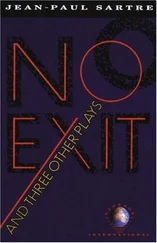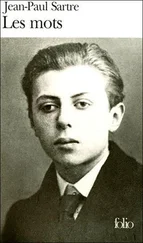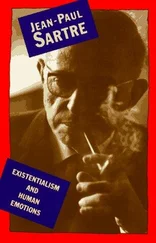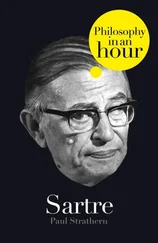71
One day Nadia didn’t get up at her usual time. Her father tried to get her out of bed, but she was feverish and didn’t leave her room for two days. From that day on she never went back to her father’s office, nor could she look Mayer in the face. Obviously disgusted, she was avoiding him. A year later Mayer left Baghdad for good, but Nadia was indelibly marked by her experience with that man.
72
After Mayer’s departure Nadia began to lead a different kind of life. She was growing up and had matured considerably, especially after the Tigris River flooded. She devoted all her time to helping the victims. She and the maid would leave her house in the morning carrying a big pot of milk to distribute to the unfortunate people living in tents close to her house. She showed a great deal of compassion and was pained by their condition, the dangers that threatened them, and the poor conditions for the children in particular. This experience with the flood victims and her volunteer activities taught her the importance of work and the benefit of giving to others. A month later she told her parents that she wanted to look for a job outside the family business.
Surprised, her father asked, “Why do you want to work? Do you need money? You can have all the money you want.”
But Nadia insisted, “No, no, I want to go out and be with people, I want to rely on myself.”
Her mother had another explanation, “You must have been influenced by some silly notions.” Nadia insisted, and three days later she found a job in the Mackenzie bookshop, where eventually she met the philosopher, who was on a family visit from Paris.
73
Nadia filled the house with joy whenever she came home for lunch. She ate with her father and took in the superb view of the greenery through the dining room window. Sometimes, even in the rain or wind, she would walk the dog on the grounds. She liked the sound of the wind and she loved the sight and smell of the orange blossoms.
She was not exactly happy, but at times she appeared to be exhilarated and at other times depressed — even on a beautiful day. She spent her weekends in the house relaxing in her favorite armchair, reading in the library, or simply staring into the flames in the fireplace.
74
The philosopher’s relationship with Nadia lasted six months, from midsummer to midwinter. He was in Baghdad on a summer vacation after he had lost all hope of ever establishing a relationship with the waitress at the Café de Flore. He wanted to try his luck with Arab women, and to this end he frequented places where women usually gathered in large numbers. The moment he saw a woman he would begin fantasizing about her and imagine her naked in bed. This is how he’d assess her suitability. He’d imagine her fixing breakfast, putting on her house clothes, dressing up in eveningwear, then he’d decide on the degree of her appropriateness — in other words, whether she deserved the title of ‘philosopher’s wife.’
Abd al-Rahman enjoyed people’s attention and their interest in him, a pleasure which clearly revealed the contradictions of his personality. There were times when he wanted to escape from himself and his loneliness and be with other people. And then there were times when he wanted, in compliance with his philosophical orientation, to show indifference and disinterest in others. But everything in the world worked against him.
The philosopher was well aware of the presence of two distinct worlds in his life — the deep internal world, where philosophy reigned, and the external world of easy, practical matters. Finding a compromise between the two and bridging their differences was no small feat. Here arose the ambiguity of marrying an Arab woman: How could one marry a woman who was neither an existentialist nor versed in any philosophy at all?
Abd al-Rahman’s imagination responded to his dilemma during the first month of his visit to Iraq. He would sit in the living room of his parents’ house, stare into the dense gardens, and imagine himself invisible, strongly convinced that somewhere there was a women for him, a woman capable of understanding his philosophy, of understanding him, and singling him out from a sea of philosophers. The man he saw in his mind would have a tired-looking face, thoughtful eyes, calm hand movements, and a certain dreaminess born of the misery and nihilism of existence.
Sometimes he considered this issue childish and even stupid, especially when he began visiting his relatives and observed the behavior of the young women. They would sit up straight with legs crossed and heads bowed, looking at the floor as a sign of subservience. He despised this attitude, all the foolishness of courting, the love notes, the successes and failures. He considered them a waste of a philosopher’s time and a distraction from his meditation. One day, before he had decided when he would return to Paris, he went to the Mackenzie bookshop.
75
Nadia attracted the philosopher’s attention. He noticed her among the other shy, sad-looking women. She stood out in her print dress, a flower in her hair, her soft, calm voice and Christian accent. She was different from the other girls he knew, who idly stayed home and quietly worked on their embroidery. Abd al-Rahman felt that she would be able to share his experience, since when he said Sartre, she responded, “I know him. I know his book, La nausée . It costs 200 fils. We have it in the store.” He mentioned Camus, and she responded right away, “I know him; he wrote a novel entitled L’etranger . It costs either 150 or 200 fils. I can’t remember.”
So she knew them all, Suhail Idris, Aida Matraji Idris, Dar al-Adab, and Simone de Beauvoir. Even if she only knew the price of their books, that counted for something. This was not an easy matter. No one among the existentialists of the world would know the price of books on existentialism. She’d be an asset for his philosophy. She’d be able to provide the price of philosophy and its cost overseas. Another woman would have asked stupidly, “Sartre? Who is this Sartre?” Whenever he went into the bookstore and looked at the books on the shelves, tired of his nausea, he would see her, as part of the colored book covers; he would visualize her live image and Sartre’s picture on the same cover. This image swelled his affection for her. She was, in his mind, a part of the books on the shelves. His presence and mood always affected her deeply as well. His power undermined her self-control, and she had to rein in her emotions. Nonetheless, she always conducted herself properly.
He would often spend a couple of hours in the bookstore, checking over the books, reading, and looking for a title he wanted. There were moments when their eyes would meet and she felt drawn to him. Her emotions imparted a certain feminine charm to her face that strongly attracted him. Whenever she asked him, “You read a lot, don’t you?”
“I do,” he’d respond. “I’m a philosopher.”
This marked the beginning of the philosopher’s affair with Nadia Khaddouri, and the end of Edmond al-Qushli’s connection with existentialism and his shift toward Trotskyism.
76
Edmond loved Nadia deeply. Whenever he visited her he would wait a few minutes before going into the house. As soon as he saw her, he would freeze until she took his hand and tugged him gently inside the house. He was a tall man, and his head reached the crystal chandelier in the living room. A picture of the Virgin Mary hung over the fireplace near a display of silver rosaries. An icon of Christ and an incense burner were on a table. On a mahogany shelf a New Testament was left open to the page where Nadia had been reading.
On one of his visits to Nadia’s house, looking at the open Bible, he asked, without looking at her, “Do you read the New Testament?”
Читать дальше












